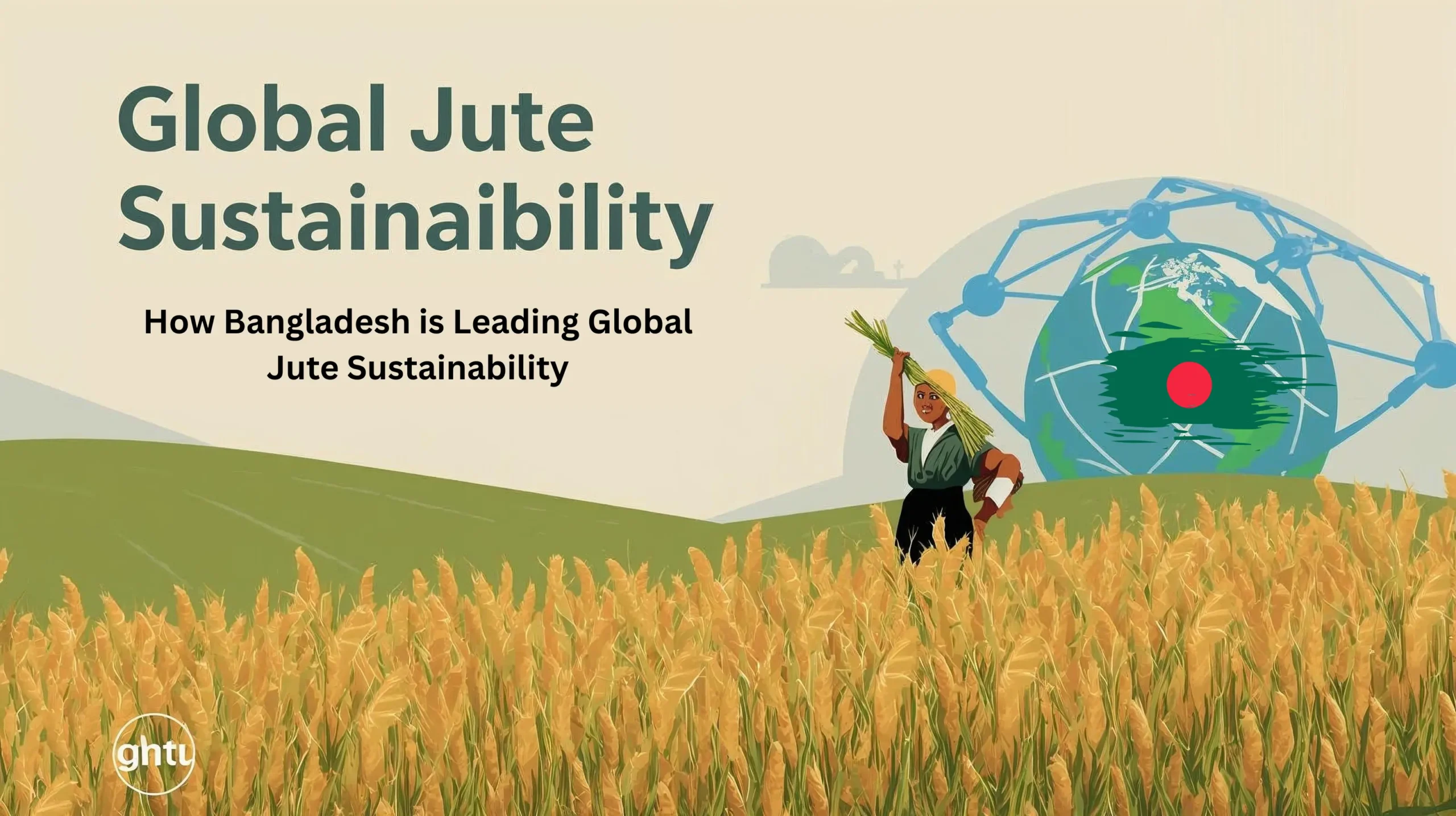
How Bangladesh is Leading Global Jute Sustainability
In the face of rising global concerns about plastic pollution and climate change, the search for sustainable materials has never been more urgent. One such solution is jute, a natural fiber that has been used for centuries. Often called the “Golden Fiber,” jute is emerging as a powerful ally in the battle against environmental degradation. The country leading the way in this shift toward sustainability is Bangladesh. This article will explore Bangladesh’s pivotal role in global sustainability through the cultivation and export of jute products.
What Makes Jute an Environmental Super-Fiber?
Jute is not just another fiber; it is a truly eco-friendly material with multiple environmental benefits. Here’s why jute is considered an environmental super-fiber:
100% Biodegradable and Compostable
One of the most significant benefits of jute is that it is entirely biodegradable and compostable. Unlike plastic, which can take hundreds of years to break down, jute naturally decomposes, enriching the soil and leaving no harmful residues behind.
A Carbon Sink
Jute cultivation actively contributes to carbon sequestration. This means that jute plants absorb significant amounts of carbon dioxide from the atmosphere, making jute an essential player in fighting climate change.
Low Water and Pesticide Needs
Unlike many other crops, jute requires minimal water and does not rely heavily on fertilizers or pesticides. It is a rain-fed crop, meaning it uses natural rainfall rather than artificial irrigation systems, making it a low-impact agricultural product.
Improves Soil Health
Jute farming has the added benefit of improving soil fertility. After harvesting, the jute plants leave behind a residue that enhances the soil’s health, making it more suitable for future crops.
Bangladesh: The Global Hub of Sustainable Jute Production
A Legacy of Leadership
Bangladesh is the world’s largest producer of jute, known for producing the highest quality of the Golden Fiber. The country’s long-standing history in the jute industry has cemented its position as a leader in global jute production. Bangladesh continues to be a key supplier of jute-based products around the world.
Socio-Economic Impact
Jute farming supports millions of rural livelihoods in Bangladesh. The industry provides employment to countless farmers, workers, and artisans, making it an essential part of the economy. This has significant positive effects on the local communities, empowering them economically and socially. By supporting jute farming, many people in rural areas can improve their living standards.
From Raw Fiber to Value-Added Products
Bangladesh’s jute industry doesn’t stop at just exporting raw fiber. Over the years, the country has invested heavily in processing the fiber into value-added products. Today, Bangladesh exports not just raw jute, but also a wide variety of finished goods, including:
- Jute bags
- Sacks
- Textiles
- Footwear
- Home decor products
These innovations have helped diversify the jute industry in Bangladesh and have created a broader range of eco-friendly products for global markets.
The Future is Diversified: Innovative Jute Products from Bangladesh
Beyond the Bag
While jute bags have traditionally been the most well-known product, Bangladeshi manufacturers are constantly innovating and developing new, sustainable products that can be used in various industries. These innovations are helping shape the future of jute as a versatile, eco-friendly material.
Emerging Product Categories
Here are some of the exciting, new products made from jute:
- Geo-textiles: These are used for soil erosion control, often in large infrastructure projects.
- Jute Composites: Jute can be blended with polymers to create eco-friendly materials for automotive parts and construction.
- Fashion and Home Decor: Jute is being used in modern consumer goods such as fashion accessories, textiles, and home decor items, thanks to its aesthetic appeal and sustainable properties.
How to Partner with Bangladesh’s Sustainable Jute Industry
The Opportunity for Global Importers
By sourcing from Bangladesh, businesses can offer their customers truly sustainable products while supporting an ethical, environmentally positive industry. Partnering with Bangladesh’s jute industry provides businesses with the opportunity to showcase their commitment to global sustainability while benefiting from high-quality, eco-friendly materials.
Making the Connection: ABBF and Kingmansa
The Africa Bangladesh Business Forum (ABBF) is a leading organization dedicated to facilitating trade between Africa and Bangladesh. ABBF offers a secure and reliable platform for international importers to connect with vetted Bangladeshi exporters, ensuring that the sourcing process is seamless and transparent.
Your Gateway to Sourcing
The official B2B platform of ABBF is Kingmansa. It allows importers to easily connect with Bangladeshi suppliers of all major exports, including jute products. Kingmansa simplifies the process, ensuring that buyers can:
- Browse a wide selection of jute products
- Request quotes for custom sourcing needs
- Communicate securely with trusted suppliers
Conclusion: A Partnership for a Sustainable Future
In conclusion, Bangladesh plays an essential role in the global jute industry, not only by producing high-quality jute but also by contributing to global sustainability. The environmental benefits of jute, such as its biodegradability, carbon sequestration, and minimal use of water and pesticides, make it a valuable resource for businesses committed to sustainable practices. Additionally, Bangladesh’s diverse range of value-added products offers a wealth of opportunities for importers to source sustainable materials for their own industries.
Ready to make a sustainable choice for your business and the planet?
Explore the Kingmansa marketplace to discover innovative jute products from verified Bangladeshi suppliers. Join the Africa Bangladesh Business Forum to build lasting trade partnerships and contribute to a greener global economy.
Frequently Asked Questions (FAQ)
- Why is jute considered an eco-friendly material?
Jute is biodegradable, requires minimal water and pesticides, and absorbs carbon dioxide, making it an environmentally friendly choice.
- What are some products made from jute?
Jute is used to make products like bags, sacks, textiles, footwear, and home decor items.
- How does jute help with climate change?
Jute acts as a carbon sink, absorbing carbon dioxide during its cultivation, which helps mitigate climate change.
- What is the role of Bangladesh in the jute industry?
Bangladesh is the world’s largest producer and exporter of jute, playing a vital role in supplying eco-friendly products globally.
- How can businesses source jute products from Bangladesh?
Businesses can connect with Bangladeshi exporters through the Kingmansa marketplace, facilitated by the Africa Bangladesh Business Forum (ABBF).

